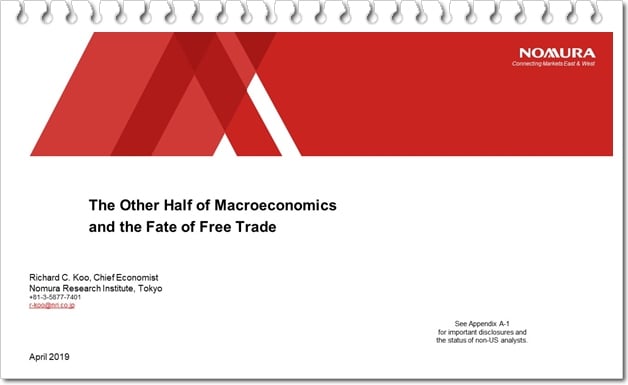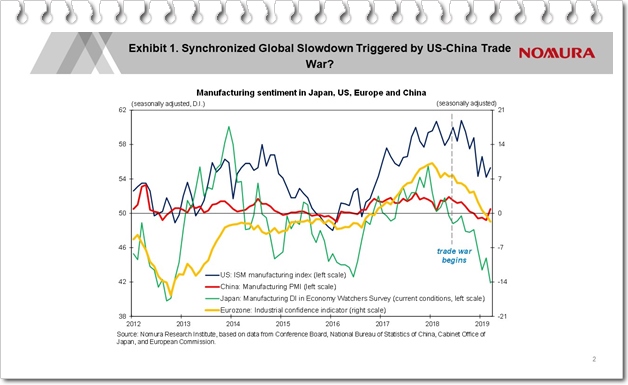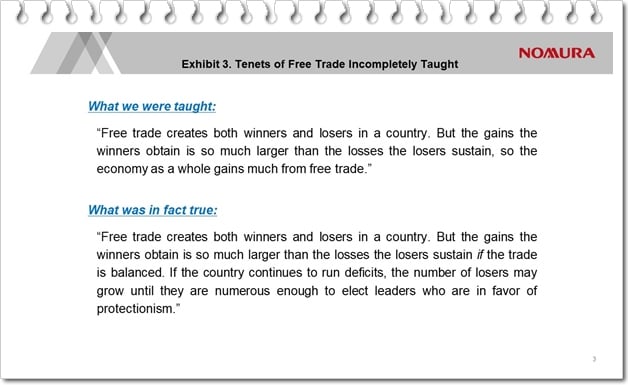Richard C. Koo, Chief Economist at the Nomura Research Institute, is a long-term observer of global economic conditions, and especially of economic development in the US, Japan, and China. He is especially well known for his development of the idea of a balance sheet recession.

Richard C. Koo spoke at the Taiwania Capital Investment Trends Forum on April 29, 2019, on the US-China trade war and how Taiwan should deal with it. In his presentation—entitled “The Other Half of Macroeconomics and the Fate of Free Trade”—Koo said that there is a broad consensus within American society that US policy was too friendly toward China in the past. In his view, although talks between the two sides could yield preliminary results within the next few months, there is little chance of the United States giving any ground. In an environment of slowing global economic growth where companies are unwilling to increase investments, Koo’s advice is to invest in startup firms. This approach, he said, could spur economic activity.

Koo stated that people living in the American Midwest and South have seen employment opportunities decline over the past several decades as the direct result of manufacturing operations migrating to Japan, Taiwan, South Korea, and China. However, he said, while the US and other open, democratic countries have been able to enter into legal agreements that have opened up up new areas for economic cooperation, they have not been able to do likewise with China. Americans used to feel hopeful about China’s policy of reform and opening up, he said, and there were always disagreements about whether to impose trade sanctions on China. However, over the last five years or so, support for China within the US has been on the wane. The fundamental reason for this trend has been questions regarding the openness of China’s systems and policies.

Other countries have never before had to deal with a China that boasted an economy of this size, said Koo, who argued that this is why President Trump urgently needs to use his current approach to find a new model for engagement with China. If nothing were done right now to force concessions from China, global economic development within 10 years would proceed according to China’s logic, and China’s rules. Under such circumstances, he said, there would be more victims than just the United States.

